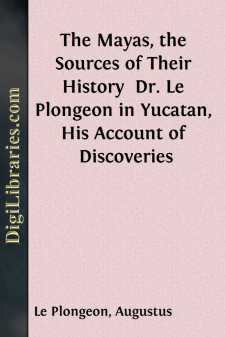Categories
- Antiques & Collectibles 13
- Architecture 36
- Art 48
- Bibles 22
- Biography & Autobiography 816
- Body, Mind & Spirit 145
- Business & Economics 28
- Children's Books 17
- Children's Fiction 14
- Computers 4
- Cooking 94
- Crafts & Hobbies 4
- Drama 346
- Education 58
- Family & Relationships 59
- Fiction 11834
- Foreign Language Study 3
- Games 19
- Gardening 17
- Health & Fitness 34
- History 1378
- House & Home 1
- Humor 147
- Juvenile Fiction 1873
- Juvenile Nonfiction 202
- Language Arts & Disciplines 89
- Law 16
- Literary Collections 686
- Literary Criticism 179
- Mathematics 13
- Medical 41
- Music 40
- Nature 179
- Non-Classifiable 1768
- Performing Arts 7
- Periodicals 1453
- Philosophy 66
- Photography 2
- Poetry 897
- Political Science 203
- Psychology 45
- Reference 154
- Religion 516
- Science 126
- Self-Help 85
- Social Science 82
- Sports & Recreation 34
- Study Aids 3
- Technology & Engineering 59
- Transportation 23
- Travel 463
- True Crime 29
Augustus Le Plongeon
Augustus Le Plongeon (1825–1908) was a British-American photographer, antiquarian, and early Mayanist who made significant contributions to the study of ancient Mesoamerican cultures. He is best known for his pioneering photographic documentation of Mayan ruins, particularly at sites like Uxmal and Chichen Itza, which were some of the earliest known visual records of these locations. Le Plongeon was also a controversial figure for his theories, such as his belief that the Mayan civilization predated and influenced ancient Egypt and the civilizations of the Old World. His major works include "Sacred Mysteries Among the Mayas and the Quiches" where he expounded on his speculative ideas about the origins of civilization.
Author's Books:
Sort by:
VESTIGES OF THE MAYAS. Yucatan is the peninsula which divides the Gulf of Mexico from the Caribbean Sea. It is comprised between the 17° 30´ and 21° 50´, of latitude north, and the 88° and 91° of longitude west from the Greenwich meridian. The whole peninsula is of fossiferous limestone formation. Elevated a few feet only above the sea, on the coasts, it gradually raises toward the interior, to a...
more...
The most comprehensive and accurate map of Yucatan is that which has been copied for this pamphlet. In the several volumes of travel, descriptive of Maya ruins, are to be found plans more or less complete, intended to illustrate special journeys, but they are only partial in their treatment of this interesting country. The Plano de Yucatan, herewith presented—the work of Sr. Dn. Santiago Nigra de San...
more...



